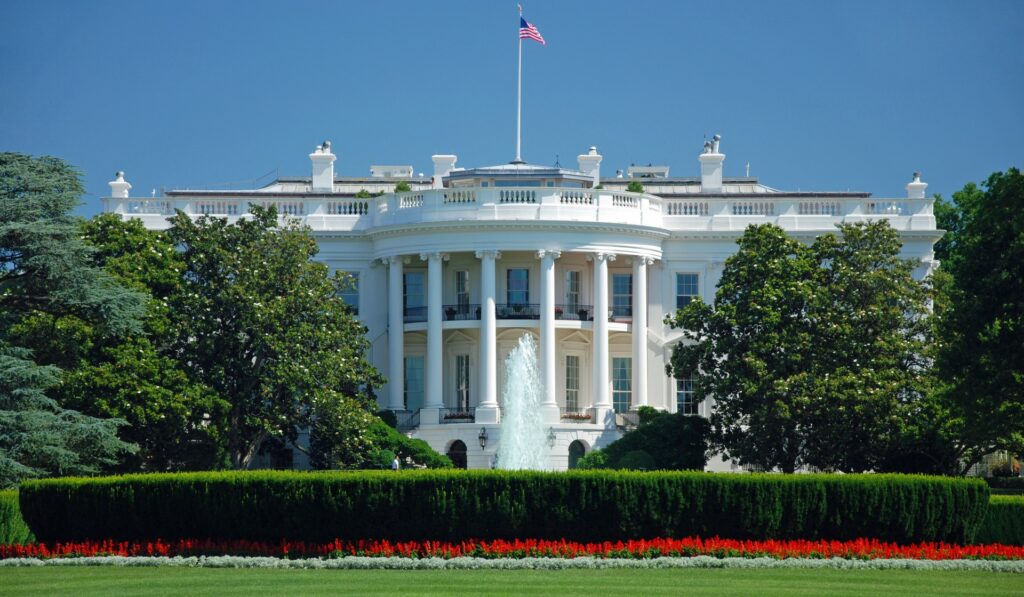President Donald Trump issued an executive order on the first day of his second term in the White House entitled “Protecting the Meaning and Value of American Citizenship.” If enacted, the order would alter birthright citizenship in the United States.
The order, which has an effective date of Feb. 20, almost immediately faced legal challenges shortly after it was signed by Trump.
Below are the latest updates about the executive order:
Second federal judge blocks Birthright Citizenship executive order nationwide
A second federal judge issued a nationwide temporary injunction Feb. 5 blocking President Trump’s executive order.
The judge in Maryland said that the order “conflicts with the plain language of the 14th Amendment, contradicts 125-year-old binding Supreme Court precedent and runs counter to our nation’s 250-year history of citizenship by birth,” according to CNN.
“The government will not be harmed by a preliminary injunction that prevents it from enforcing an executive order likely to be found unconstitutional,” the judge said, via CNN.
A federal judge in Seattle also temporarily blocked the executive order in late January.
Federal judge blocks Trump’s order on birthright citizenship
A federal judge in Seattle has temporarily blocked Trump’s “Protecting the Meaning and Value of American Citizenship” executive order, which would change who is entitled to birthright citizenship in the United States.
The pause in enforcement of the order nationwide came as a result of a lawsuit filed by four states, Washington, Illinois, Arizona and Oregon, who argued the measure violated the 14th amendment.
“I’ve been on the bench for over four decades, I can’t remember another case where the question presented is as clear as this one is,” the judge said, via the Seattle Times. “This is a blatantly unconstitutional order.”
A separate lawsuit from 18 other states related to the executive order was also filed earlier this week in federal court in Massachusetts.
Find out more here via the Seattle Times.
What to know about President Trump’s executive order
President Donald Trump’s “Protecting the Meaning and Value of American Citizenship” executive order would remove birthright citizenship from those born in the United States:
- When their “mother was unlawfully present in the United States and the father was not a United States citizen or lawful permanent resident at the time of said person’s birth.”
- When their “mother’s presence in the United States at the time of said person’s birth was lawful but temporary (such as, but not limited to, visiting the United States under the auspices of the Visa Waiver Program or visiting on a student, work, or tourist visa) and the father was not a United States citizen or lawful permanent resident at the time of said person’s birth.”
In practice, this means that individuals who are born inside of the United States without a parent who is a U.S. citizen or legal permanent resident at their time of birth will no longer be entitled to automatic citizenship. This includes children of foreign nationals who are present in the U.S. without status, as well as those who are in the country legally with a work visa or other temporary visa, such as a tourist or student visa.
The order instructs the departments and agencies of the executive branch to not issue or accept documents recognizing U.S. citizenship to or from the applicable individuals impacted by the change.
The order is already facing legal challenges as of Jan. 21, 2025. It is unclear if the President has the authority to alter birthright citizenship via executive action because of previous Supreme Court interpretations of the 14th Amendment to the U.S. Constitution.
Learn more about the order and other immigration actions from Day 1 of Trump’s second term.
Can U.S. birthright citizenship be changed? A comprehensive overview
Garfinkel Immigration Law Firm published its newest white paper in early January, shortly before President Donald Trump began his second term in the White House.
In the paper, Associate Attorney Brian Daza provided a comprehensive overview of U.S. birthright citizenship and whether it could potentially be changed by the Trump administration.
“Legal challenges will almost certainly begin on the grounds that the action violates the interpretation of the Fourteenth Amendment established by Wong Kim Ark,” Daza wrote. “An executive order eliminating birthright citizenship would seemingly directly conflict with existing interpretations of the Fourteenth Amendment.”
Read the full white paper here.
Note: This story was originally published on Jan. 23 and last updated on Feb. 5.

